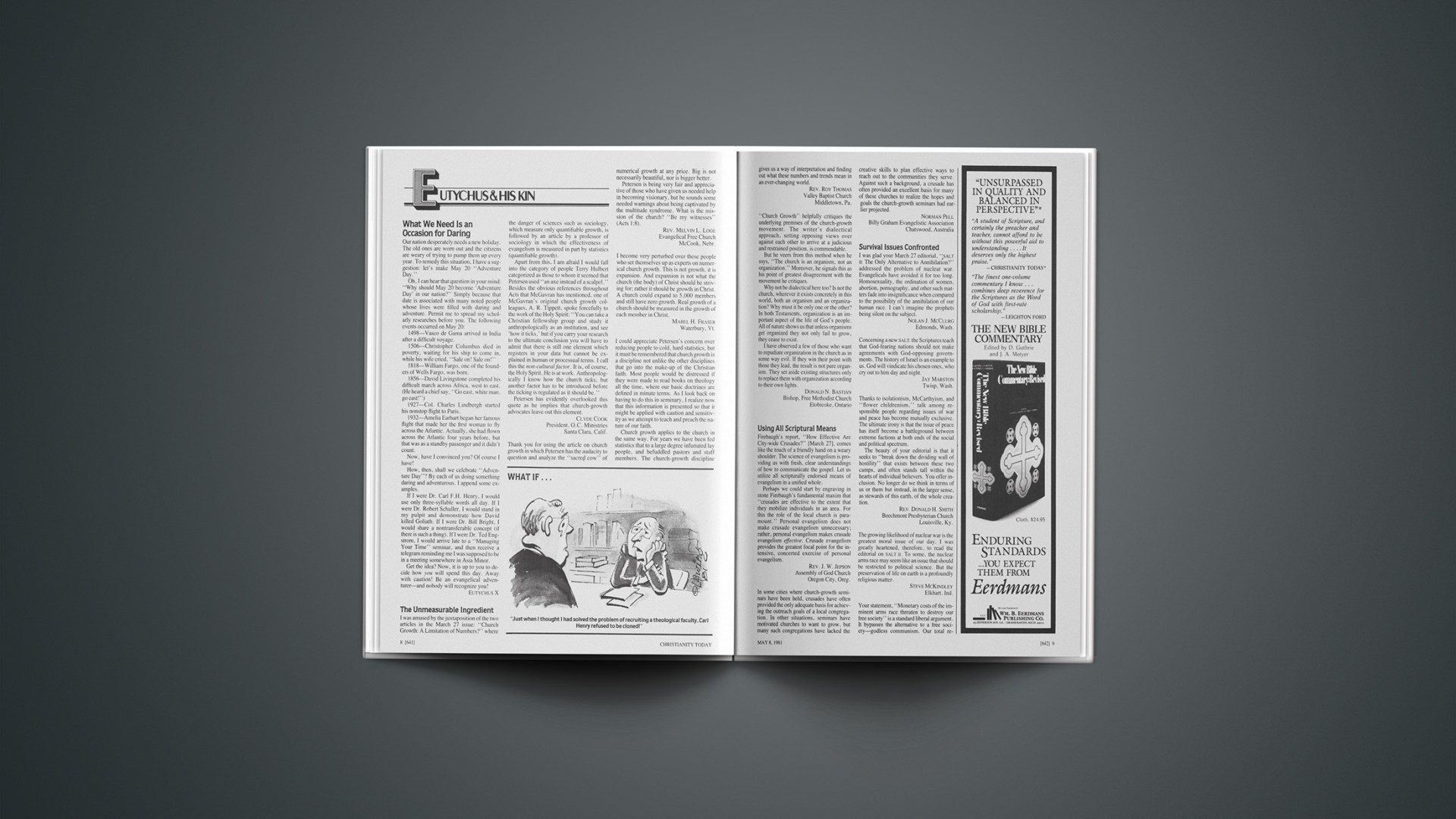Israeli officials increasingly view the growing evangelical Christian movement in the United States as a potent ally in the long struggle between the Jewish state and its Arab neighbors. Because of their frequently literal interpretation of Abraham’s covenant—granting the land of Canaan to Abraham and his “seed”—evangelical Christians make natural supporters of the Israeli cause, they say.
Politically, evangelicals attracted to Israel cover a wide range, from moderates who view the Jewish state as an underdog fighting for survival, to fundamentalists convinced that Israel will play a central role in that final, apocalyptic chapter of history that climaxes with the Second Coming. From either angle, they often end up supporting Israel.
Israeli officials, noting that the evangelicals are 40 million strong in the United States, say they welcome the Christian backing regardless of its results. But, they add, the principal question is, How will it be translated into practical terms—and what effects will it have on Reagan administration policies?
According to Chaya Fisher, director of the Pilgrimage Promotion Division in Israel’s Ministry of Trade and Tourism, 100,000 U.S. Christians visited the Jewish state in 1980. Their itineraries reflect a desire “to know and understand Israelis” and “a positive, friendly outlook,” he said.
Even more valuable to Israel, perhaps, are those within the United States who have organized pro-Israeli movements outside their churches and denominations.
The alliance appears surprising because, traditionally, Israel and the Zionist movement have had strong ties with U.S. labor and the northern liberal establishment, which includes many Jews, and with which the evangelicals often take issue.
Israeli information officer Chafets, speaking about the activities of the fundamentalist Christians, said, “What we don’t know is what effect this will have on [President] Reagan, who clearly benefited in his election from the Christian right. Will they become a pressure group and will they affect policy? Those are the questions.”
WILLIAM CLAIBORNE
Reprinted from the Washington Post, March 23, 1981; used by permission.
The international environment of the 1980s will not be one in which we can afford to ascribe benign or passive motives to the Soviets and their allies. It is very clear that, using the lever of their unprecedented military strength, the Soviets intend to create instabilities throughout the world and then keep the United States immobilized and pinned down by the threat of an unfavorable direct military confrontation. As long as we allow a differential in military strengths, we can expect that blatant exploitations of international instabilities will affect our ability to depend on foreign resources, our prestige in the world, our ability to trade freely with other nations, and very soon, affect directly our daily lives.
The international attitude of our nation must be one of awareness and preparation. Individual Americans like you, preparing careers and livelihoods, cannot be blind, ignorant, or uninterested in these realities. We will all be called upon in one way or another, at the very minimum, to express a sense of national understanding and purpose, as we face the difficult job of standing up to a power with murderous intentions and tremendous capacity for domination in its attempts to exert its control in every part of the globe.
HENRY G. CISNEROS1Mr. Cisneros is the Hispanic-American mayor of San Antonio, Texas.
Recent talk by public figures about winning or even surviving a nuclear war must reflect a widespread failure to appreciate a medical reality: any nuclear war would inevitably cause death, disease, and suffering of epidemic proportions. Effective medical interventions on any realistic scale would be impossible. This reality, in turn, leads to the same conclusion public health specialists have reached for such contemporary epidemics as those of lung cancer and heart disease: prevention is essential for effective control.
HOWARD H. HIATT2Dr. Hiatt is dean of Harvard University School of Public Health.










